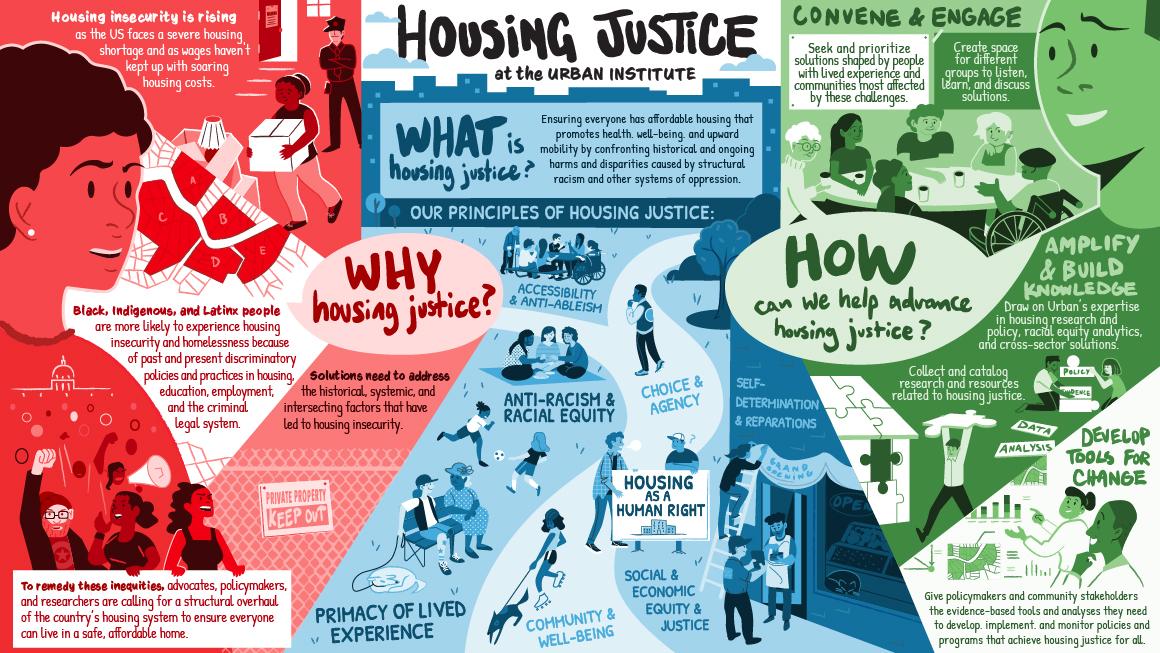Justice Housing in Action: The Foundation on Which Strong and Equitable Communities Are Built
In recent years, the concept of housing justice has gained significant traction as a critical component of broader social justice movements. Housing is not merely a commodity; it is a fundamental human right that underpins individual dignity, community stability, and equitable access to opportunities. The intersection of housing and justice reveals how secure, affordable housing can serve as a foundation for strong and equitable communities. This article explores the principles of housing justice, its importance in fostering community well-being, and the actions necessary to create a more just housing landscape.
Understanding Housing Justice
Housing justice is defined as the pursuit of equitable access to safe, affordable housing while addressing systemic inequalities that have historically marginalized certain communities. According to the Urban Institute, housing justice involves increasing access to quality housing and promoting wealth-building opportunities by confronting ongoing disparities caused by structural racism. This definition underscores the need for policies that not only provide shelter but also empower individuals and communities to thrive economically and socially.The principles guiding housing justice include:
- Housing as a Human Right: Recognizing that everyone deserves access to stable and adequate housing.
- Anti-Racism and Racial Equity: Acknowledging the historical injustices faced by marginalized groups and creating reparative policies.
- Community and Well-Being: Understanding that stable housing contributes to overall health, education, and economic opportunities.
Justice Housing – The Role of Housing in Justice Systems
The relationship between housing and justice systems is profound. Research indicates that stable housing can significantly impact individuals’ interactions with the legal system. For instance, public defenders have noted that clients with stable homes are more likely to achieve favorable outcomes in court. Judges often consider stable housing as a sign of community ties, leading them to set lower bail amounts or favor community sentences over incarceration. Thus, addressing housing insecurity is essential for reducing recidivism rates and promoting public safety.Moreover, families facing housing instability often experience prolonged court proceedings related to child custody or family reunification. The lack of a stable home can delay these critical processes, further entrenching families in cycles of poverty and legal entanglements. Therefore, prioritizing housing justice not only addresses immediate needs but also fosters healthier family dynamics and community resilience.
Building Strong Communities through Justice Housing
The pursuit of housing justice is vital for building strong communities. When individuals have access to safe and affordable homes, they are better positioned to engage in their communities, pursue education, secure employment, and contribute to local economies. Conversely, when people lack stable housing, they may face barriers that limit their ability to thrive.To build strong communities through housing justice, several key actions are necessary:
- Policy Reform: Governments at all levels must implement policies that prioritize affordable housing development, protect tenants’ rights, and eliminate discriminatory practices in the housing market. This includes revising zoning laws to allow for diverse housing options and increasing funding for affordable housing initiatives.
- Community Engagement: Empowering communities to participate in decision-making processes related to housing development is essential. Community-led initiatives ensure that local needs are addressed and that residents have agency over their living conditions.
- Education and Advocacy: Raising awareness about the importance of housing justice among policymakers and the general public can drive meaningful change. Advocacy efforts should focus on highlighting the interconnectedness of housing stability with health outcomes, educational attainment, and economic mobility.
- Investment in Support Services: Providing support services such as financial counseling, job training programs, and mental health resources can help individuals maintain stable housing while building pathways out of poverty.

Conclusion
Justice in housing is not merely an issue of providing shelter; it is about ensuring that all individuals have access to safe, affordable homes that support their well-being and empower them within their communities. By recognizing the fundamental role of housing in fostering equity and justice, we can take meaningful steps toward creating inclusive societies where everyone has the opportunity to thrive. As we move forward into 2025 and beyond, prioritizing housing justice will be crucial in addressing systemic inequalities and building resilient communities. By advocating for policies that promote equitable access to housing, engaging communities in decision-making processes, and investing in support services, we can lay the groundwork for a future where strong and equitable communities are built on the foundation of justice in housing.
For further reading:
Why Housing Is Essential to Justice innovatingjustice
Defining housing justice: an audiovisual exchange of struggle and … iied
